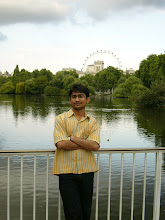Unplanned and unregistered mosques are springing up in various parts of the city - some being built owing to sectarian differences, and are fast becoming a source of worry.
By Abdullah Khoso
Khob Nawaz, 45, is not a content man. Every day, along with other residents in his locality of Muhammadi Colony in Keamari, he has to walk long distances to a mosque in a neighbouring area, even though there is one right in his own neighbourhood.
However, the mosque in question – Tayyaba Mosque – is currently under the control of a Pesh Imam, Allah Buksh, and it is because of him that the residents of Muhammadi Colony have refused to offer prayers in their own area.
Buksh's occupation of the mosque was not always a disputed matter. A few years ago, he was asked by one Babu Tanveer, another resident of the community, to lead prayers at the mosque when it was under construction.
But when the people of the area noticed Buksh practising rites different to what they followed, they stopped going to his mosque and instead turned to a mosque in a different neighbourhood.
"It became a problem for the older people of the area in particular," explains Nawaz. "They have very strict beliefs that do not permit them to offer prayers behind someone who belongs to another sect. They now have to walk a long way to get to the other mosque."
Buksh, however, is convinced he should remain in the mosque and continue to preach as he has been for the past two years. He is backed by another Sunni group, but according to Nawaz, the people of this group live in a separate area. "Allah Bukhsh himself lives a good 10 miles away from the mosque," adds Nawaz.
In Karachi, it has been learnt that disputes over who is in control of a mosque stem mainly from two reasons: sectarian differences, as in the case of the Tayyaba mosque, or money. In the latter case, local communities, who have little to do with the issue at hand, end up being the most affected.
"Five years ago, disputes over the possession of mosques in Karachi were very common, and were usually started by land-grabbers, who used the mosque to protect their economic interests," says Muhammad Younis, Coordinator, Urban Resource Centre, an NGO.
This means that often, mosques end up being built where they should not be. As Younis points out, "The allotment of land should be planned, but neither the people nor the government care. People just donate a piece of land and construct a mosque on it regardless of whether that area is suited for it"
To back his claim, Younis cites the example of a mosque in Lyari which is built on a sewerage line. The construction of the mosque has blocked the flow of sewage and filled the area with a stench.
"It is an awful thing, but no one cares," laments Younis. He adds that there are many other mosques in the city that cause traffic jams because they are ill-placed, but no one speak up against it.
"It is such a sensitive issue that no one dares say anything."
Asif Khalid Saif, senior research officer at the Council of Islamic Ideology, agrees that mosques should not be constructed without due approval and planning. "A mosque should be a source of integration in society rather cause of inconvenience for neighbours and civic life," he says.
However, those who are in control of mosques in Karachi claim that not every mosque in the city falls under their jurisdiction. Mosques are the concern of the Auqaf Department, but the department, which deals with just 31 mosques in the city, admits that they do not know exactly how many there are. "We are not concerned about other mosques and their construction, nor do we know where new mosques are being approved or registered for construction," states Muhammad Nusrat Hussain, Administrator Auqaf Department.
Constructing mosques without prior permission may not be legal, but even when the dispute is sectarian in nature, such as with Tayyaba mosque, it is liable to end up in court.
"I have dealt with many cases like this, and I know that in Karachi, some people do not like to go to neighbouring mosques, even if those in charge of those mosques belong to their own sect," says Javed Ahmed, who practises law at civil court.
He does not have to look far to prove his point. "My own uncle believes that people in neighbouring mosques are not Muslims practise an interpretation of Islam that is incorrect," he says.
In 2007, a similar type of civil suit was filed at the Civil Court West, where two parties were battling over the rights to the Jamia Masjid, part of Farooq Azam Trust in Sultanabad. Unlike in the case of the Tayyaba mosque, however, here both parties belonged to the same ideological group, and were locked in controversy over who should receive the rent generated by 17 shops built on land allegedly belonging to the mosque. The Union Council Nazim was dragged into the affair, and ultimately dissolved the committee of the Farooqe Azam Trust, although later the decision was challenged and deemed unlawful.
The dispute surrounding Tayyaba mosque, meanwhile, has been taken to the DDO office Keamari under the section 107 and 117 of the criminal procedure act. The administration at the DDO office considers the issue a sectarian divide and has indicated that the case should proceed quickly, considering the sensitive nature of the dispute. However, no decision has been reached to date.
Published with Kolachi, The News International at http://jang.com.pk/thenews/apr2009-weekly/nos-12-04-2009/kol.htm#3
Sunday, April 26, 2009
Subscribe to:
Post Comments (Atom)

No comments:
Post a Comment